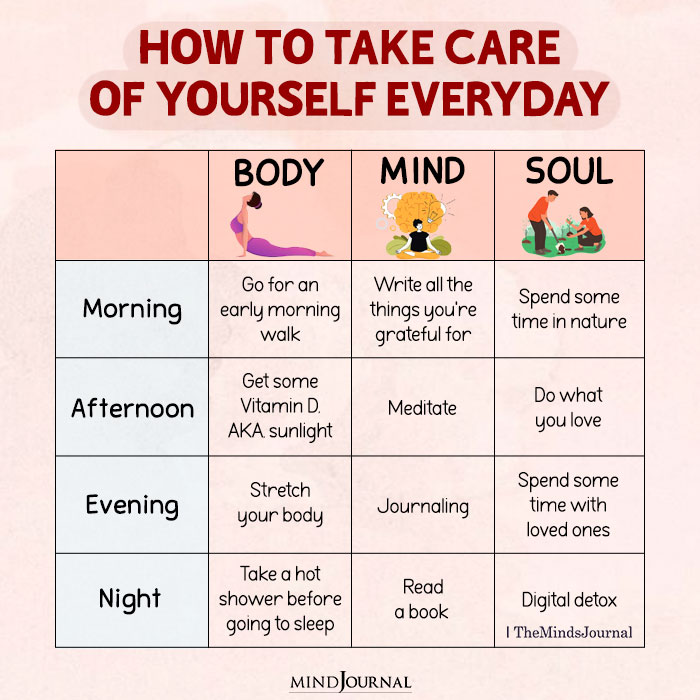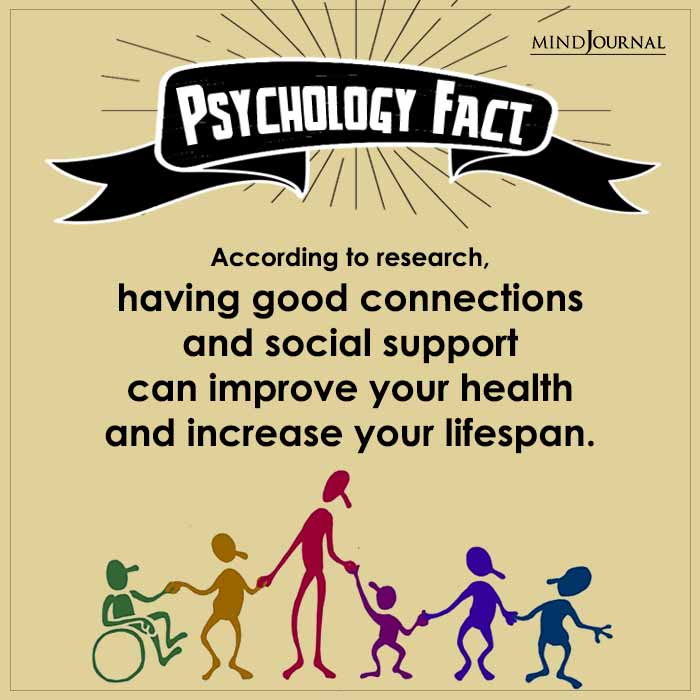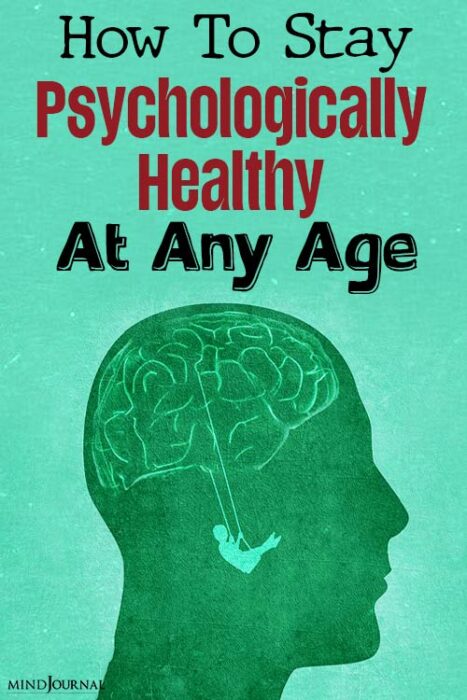Just like your physical health is important, psychological well-being and psychological wellness are equally vital to for living a happy, and healthy life. This article is going to talk about how to stay psychologically healthy, irrespective of age.
KEY POINTS
- The health of the American population overall is declining as demographic shifts occur.
- Staying psychologically healthy has positive effects on physiological health.
- Maintaining social connections and building resilience as you age are equally important for mental well-being.
For the past several decades, the American population has been growing steadily older. As of late 2019, the number of American adults born into the Baby Boom generation (between 1946 and 1964) was estimated at about 73 million, or about 22 percent of the population, as stated by the U.S. Census Report.
This means that by 2030, less than seven years from now, every member of this massive demographic will be 65 or older. And by 2050, according to a website called the Rural Health Information Hub, the number of adults over 65 will be over 90 million.
You’re not alone if you’re reading this and reflexively wondering about your health. The UN General Assembly has declared the Decade of Healthy Aging from 2021 to 2030, emphasizing the importance of health to the lived experience of older adults. Unfortunately, the outlook on our collective health looks to be fairly poor.
According to a 2021 article by Kim et al. in Gerontology and Geriatric Medicine, the evidence suggests that the number of years lost to disability is increasing, and historic gains we have made in life expectancy are eroding, and even reversing in some groups.
Related: Feeling Burnt Out? 4 Signs Its Time For Taking A Mental Health Day From Work
Our national mental health doesn’t look much better: the U.S. Department of Health and Human Services has reported for years that “the rate of older adults with depressive symptoms tends to increase with age.”
The American Association of Geriatric Psychiatry concurs, estimating that 20 percent of people aged 55 and older will experience some kind of mental health problem, such as a mood disorder (like depression or bipolar disorder), anxiety, or severe cognitive impairment.
Psychologically, there are ways to approach aging that should help us cope and stay mentally and emotionally healthy. After all, “psychological well-being” is often associated with reducing persistent health problems (Kim et al., 2021).
How to Stay Psychologically Healthy at Any Age
For one thing, psychologically healthy people appear to stay physically healthy, too. A 2018 study by Kubzansky et al. found that these people tend to exercise more, eat more nutritious diets, sleep better, and avoid unhealthy choices such as tobacco use.
Strong “social well-being” can also enhance our health as we age. Holt-Lunstad et al. (2015) conducted a meta-analysis finding reduced mortality risk in older people with sufficiently strong social relationships.
What might be the most significant psychological factor while healthy aging? A Korean study by Han et al. (2015) focused on depression, ego integrity, self-esteem, and participation in satisfying leisure activities — among others — and determined that the presence or absence of major depressive disorder had the greatest effect on longevity.

Other studies have been even more specific. Galkin et al. (2022) indicated that “feeling unhappy or being lonely [can] add up to 1.65 years to one’s biological age.” This effect, Galkin continued, can cut down the lifespan even more than the well-known toxic effects of smoking cigarettes.
To live longer, it may be important to become more psychologically healthy; doing that involves several components. First is emotion regulation — learning how to cope with difficult life circumstances.
Applebaum and Kubzansky, writing in 2014’s Handbook of Emotion Regulation, stated that developing adaptive strategies to manage your affective responses (such as cognitive reappraisal, changing the way you view negative events) can be associated with improved cardiovascular health and even reduced inflammation.
Perhaps the best strategy for reining in emotional reactivity is maintaining an optimistic outlook, which can promote positive problem-solving strategies or encourage perseverance in the face of challenges (John & Gross, 2004).
And for those who aspire to the highest peaks of resolve and commitment, note that having an improved sense of purpose and meaning in life is associated with better glucose regulation (Boylan et al., 2017) and reduced inflammation (Cole et al., 2015).
You may have read elsewhere that one of the best ways to preserve your health as you age is to maintain solid social connections. It’s true.
A 2015 meta-analysis by Santini et al. indicated that depression could be forestalled or reduced by several different aspects of friendships, family connections, or other social relationships — aspects like self-efficacy, healthier coping styles, and the salubrious effect of having a spouse.
Related: 10 Signs You’re Not Taking Good Care Of Yourself (And How To Start)
Kim et al. listed other positive dimensions of social relationships: physical and cognitive stimulation; access to resources like health care, housing, and economic opportunities; positive influences on health behavior such as adherence to treatment recommendations; and also more straightforward benefits, including financial or emotional support.
These dimensions of social support may promote better coping strategies and a less negative outlook on difficult situations, which Kim et al. concluded could lead to reduced “physiological dysregulation.”
As with psychological well-being, social support has also been experimentally associated with reductions in inflammation (Uchino et al., 2018) and with various healthy behaviors, like better nutrition, better sleep hygiene, and reduced likelihood of smoking (Christakis & Fowler, 2013).
It’s even possible that strong social groupings like families or neighborhood associations can propagate healthy messages throughout clusters of people. The above-mentioned Christakis and Fowler found that the opposite was true.
A given person is 61 percent more likely to smoke if a social contact who smokes is one degree of separation away (like a friend), 29 percent more likely if the smoker is two degrees of separation away (like a friend of a friend), and only 11 percent more likely if this hypothetical smoker is three degrees of separation away.
Unfortunately, social support seems to diminish as one ages, at least in the U.S. The CDC recently reported that adults over 65 were more likely than 50-to-64-year-olds to say that they “never” or only “rarely” found the social support they needed. This may increase depression, loneliness, and other threats to psychological well-being.

Maintaining our connections and other components of healthy aging can help us develop resilience: “a cluster of capacities, characteristics, resources, and processes related to the development and maintenance of healthy adaptation,” according to Kim et al.
Being resilient partly means having the capacity to adjust to difficult life experiences in ways that reflect one’s own unique history, cultural values, and circumstances; thus, becoming more resilient, as described by Pruchno et al. (2015), is “an aim that all people can strive toward,” no matter what their current age, financial situation, or health status.
Related: 5 Enlightened Ways To Think About Mental Health
Resilience-based mental health is the long-term goal of psychological wellness and social affinity. As the country’s population grows older and possibly more distant from each other, striving to stay close to others and maintain your resilience could be a life-saving choice.
References:
American Association of Geriatric Psychiatry (2008). Geriatrics and mental health—the facts. Available at: http://www.aagponline.org/prof/facts_mh.asp (accessed June 23, 2008). Applebaum, A. J., & Kubzansky, L. D. (2014). Emotion regulation and cardiovascular disease risk. In J. J. Gross (Ed.), Handbook of emotion regulation (2nd ed., pp. 596–612). Guilford Press. Boylan J. M., Tsenkova V. K., Miyamoto Y., Ryff C. D. (2017). Psychological resources and glucoregulation in Japanese adults: Findings from MIDJA. Health Psychology, 36(5), 449–457. Centers for Disease Control. (n.d.). The state of mental health and aging in America: Issue brief. Retrieved from https://www.cdc.gov/aging/pdf/mental_health.pdf Christakis N. A., Fowler J. H. (2008). The collective dynamics of smoking in a large social network. New England Journal of Medicine, 358(21), 2249–2258. Cole S. W., Levine M. E., Arevalo J. M. G., Ma J., Weir D. R., Crimmins E. M. (2015). Loneliness, eudaimonia, and the human conserved transcriptional response to adversity. Psychoneuroendocrinology, 62, 11–17. Fedor Galkin et al. (2022). Psychological factors substantially contribute to biological aging: evidence from the aging rate in Chinese older adults, Aging. 14(18): 7206–7222. Han, K.H., Lee, Y.J., Gu, J.S., Oh, H., Han, J.H., & Kim, K.B. (2015). Psychosocial factors for influencing healthy aging in adults in Korea. Health and Quality of Life Outcomes, 13 (31). Holt-Lunstad J., Smith T. B., Baker M., Harris T., Stephenson D. (2015). Loneliness and social isolation as risk factors for mortality: A meta-analytic review. Perspectives on Psychological Science: A Journal of the Association for Psychological Science, 10(2), 227–237. John, O.P. & Gross, J. J. (2004). Healthy and Unhealthy Emotion Regulation: Personality Processes, Individual Differences, and Life Span Development. Journal of Personality, 72(6), pp 1301-1334. Kim, E. S., Tkatch, R., Martin, D., MacLeod, S., Sandy, L., & Yeh, C. (2021). Resilient aging: Psychological well-being and social well-being as targets for the promotion of healthy aging. Gerontology and Geriatric Medicine, 7. Retrieved from https://www.ncbi.nlm.nih.gov/pmc/articles/PMC7995285/ Mitina, M., Young, S., & Zhavoronkov, A. (2020). Psychological aging, depression, and well-being. Aging. 12(18): 18765–18777. Pruchno R., Heid A. R., Genderson M. W. (2015). Resilience and successful aging: Aligning complementary constructs using a life course approach. Psychological Inquiry, 26(2), 200–207. The Rural Health Information Hub. (n.d.). Demographic changes and aging population. Retrieved from https://www.ruralhealthinfo.org/toolkits/aging/1/demographics Santini, Z., Koyanagi, A., Tyrovolas, S., Mason, C., Haro, J.M. (2015, April 1). The association between social relationships and depression: a systematic review. Journal of Affective Disorders, 175:53-65. Strine, T.W, Chapman, D.P, Balluz, L., Moriarty, D.G., & Mokdad, A.H. (2008). The associations between life satisfaction and health-related quality of life, chronic illness, and health behaviors among U.S. community-dwelling adults. J Community Health; 33:40–50. Uchino B. N., Trettevik R., Kent de, Grey R. G., Cronan S., Hogan J., Baucom B. R. W. (2018). Social support, social integration, and inflammatory cytokines: A meta-analysis. Health Psychology, 37(5), 462–471. The United States Census Bureau. (2019, December 10). 2020 census will help policymakers prepare for the incoming wave of aging boomers. Retrieved from https://www.census.gov/library/stories/2019/12/by-2030-all-baby-boomers-will-be-age-65-or-older.html U.S. Department of Health and Human Services (1999). Older Adults and Mental Health. In: Mental Health: A Report of the Surgeon General. Retrived from: http://www.surgeongeneral.gov/library/mentalhealth/chapter5/sec1.html Zadworna, M. (2022). Pathways to healthy aging – Exploring the determinants of self-rated health in older adults. Acta Psychologica, 228. Retrieved from https://www.sciencedirect.com/science/article/pii/S0001691822001664
Written By Loren Soeiro
Originally Appeared On Psychology Today









Leave a Reply
You must be logged in to post a comment.